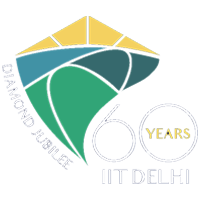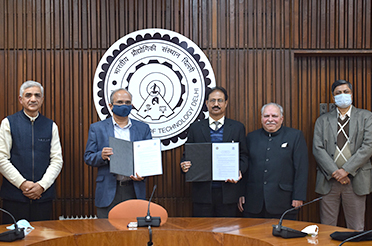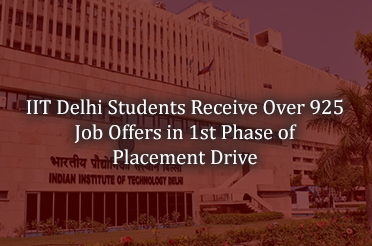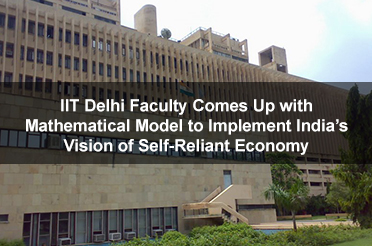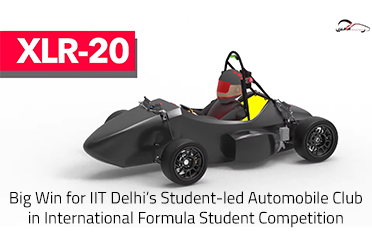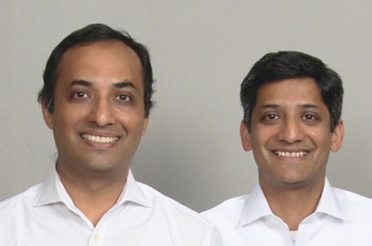Publish Date: 30th September 2020
New Course at IITD: Interview with Prof. Puneet Mahajan
Share this on
 Poster
Poster
Over the years most of the undergraduate engineering programmes have become broad-based and have not been able to address the emerging interdisciplinary areas related to Mechanics. So the main objective of the program is address this lacuna by cultivating young minds to analyse complex interdisciplinary phenomena and venture into cutting edge research through experimentation, analysis and computation.
The Department of Applied Mechanics at IIT Delhi is starting a B. Tech in Engineering and Computational Mechanics. This will be a 4 year B.Tech program with entry through Advanced JEE.
In an interview to Vanita Srivastava of the Communication Cell, the course coordinator Prof Puneet Mahajan spells out the focus areas of the new course, the job market it will cater to and more. Prof Mahajan was the head of the Department when the programme was conceptualized and approved.
Edited excerpts:
Can you brief a bit about the new course at the undergraduate level?
The focus of program is to provide broad-based engineering education in emerging interdisciplinary areas. The emphasis will be on providing a strong grounding in the fundamentals of engineering mechanics along with the tools to address the needs of emerging areas such as biomechanics, nano-mechanics, constitutive modelling at multiple length and time scales, machine learning, artificial intelligence in mechanics etc.
The students taking this course will be able to analyse complex interdisciplinary phenomena relevant to problems in industry and cutting edge research through experimentation, analysis and computation.
When is this likely to start?
The course has been approved by IIT Delhi and is being offered to students taking JEE in 2020.
What are the strengths of Department of Applied Mechanics?
The Department of Applied Mechanics at IIT Delhi is an engineering department involved in teaching, research and industrial consultancy in the basic/fundamental areas of Engineering Mechanics and Product Design. The main focus is to disseminate the fundamental principles of Solid and Fluid Mechanics and implement these fundamental concepts to tackle real-life problems by using analytical, computational and experimental methods. The department follows these principles and methods in teaching and in research areas such as constitutive modelling, impact mechanics, nonlinear mechanics, nano-mechanics, bio-mechanics, off-shore structures, internal and external flows including laminar and turbulent flows, industrial aerodynamics, compressible aerodynamics. Over the last five decades, specialized laboratories have been developed to a high degree of sophistication especially in the broad areas of Solid Mechanics, Fluid Mechanics and Computation. Solid Mechanics Laboratories include state of the art facilities.
What are the main objectives behind starting this course?
Over the years most of the undergraduate engineering programmes have become broad-based and have not been able to address the emerging interdisciplinary areas related to Mechanics. So the main objective of the program is address this lacuna by cultivating young minds to analyse complex interdisciplinary phenomena and venture into cutting edge research through experimentation, analysis and computation.
How does this fundamentally differ from the other related courses?
Unlike the other related courses which have become broad-based, this program will lay emphasis on providing a strong grounding in the fundamentals of engineering mechanics along with the tools to address the needs of emerging areas listed above. Strong engineering fundamentals will enable students to appreciate emerging trends, be ready to solve complex industrial problems and equip them with the tools to spearhead new areas of research.
What kind of job market will the course target at?
Design, analysis and research jobs in sectors such as defence, aerospace, automotive, shipping, bio-mechanics and bio-medical devices, off-shore structures etc. will be open to students doing this program which has been designed based on consultation with industry.Equipped with analytical and state of the art experimental and numerical skills learned during the program the students will be able to pursue Master’s and PhD program in best Universities in India and abroad.
